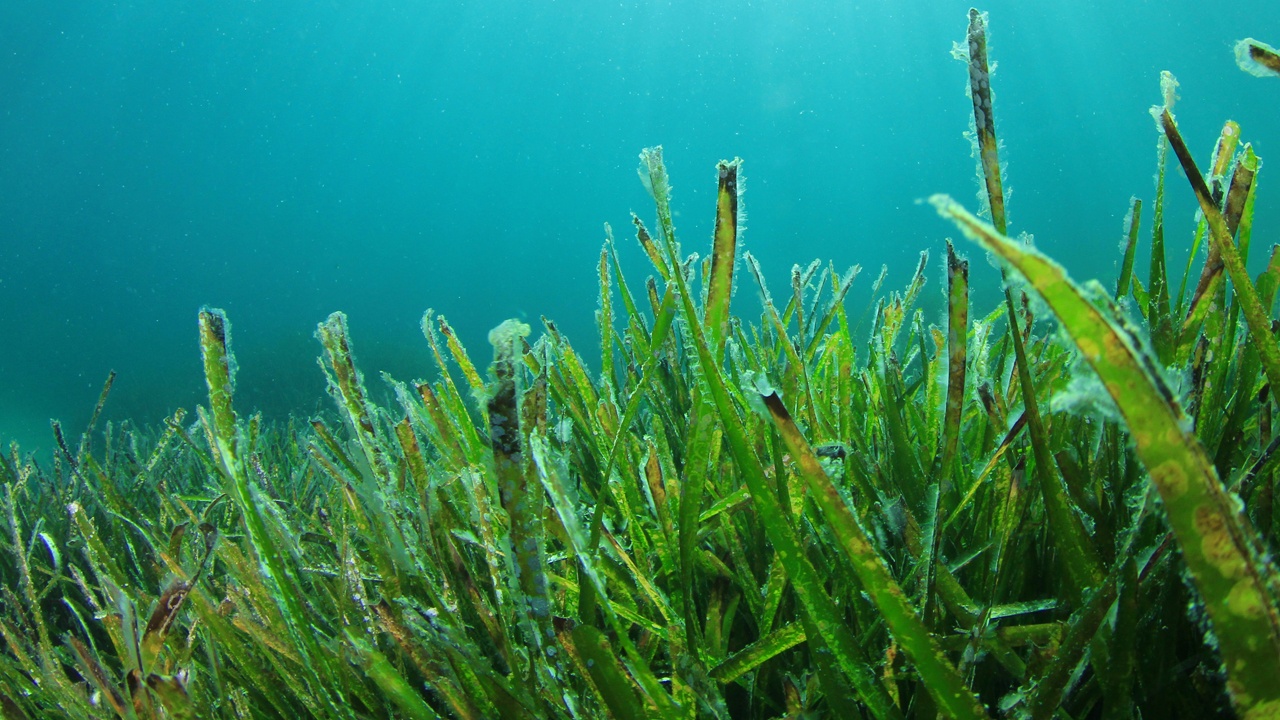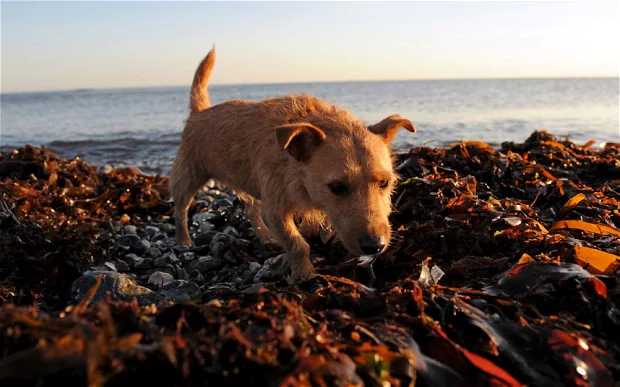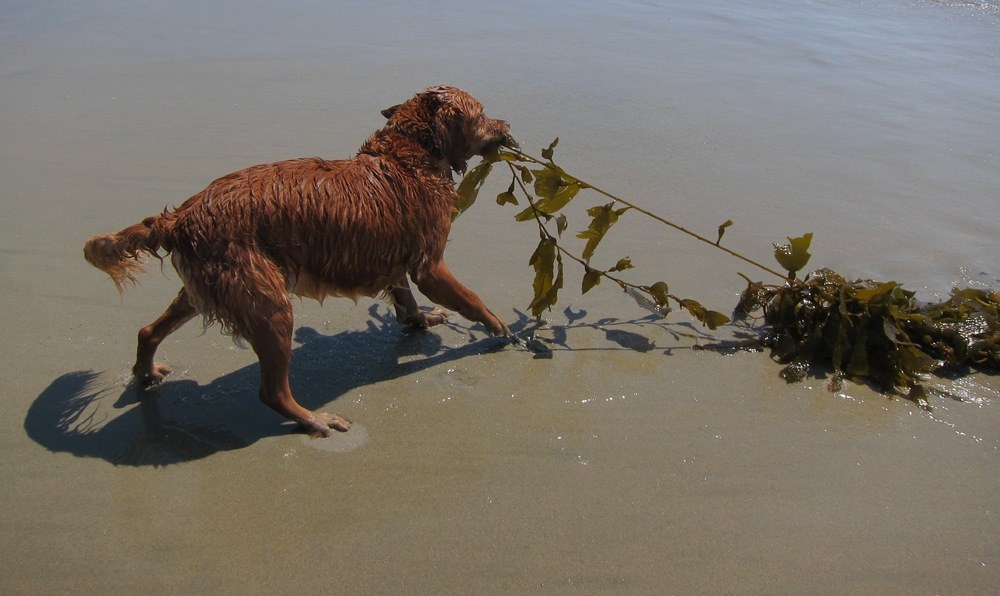
Seaweed is good for iodine supplement to humans. It is delicious when prepared accordingly. It is popular as a source of iron, omega 3-fatty acids, and magnesium. But would this be true to the canine world?
Can dogs eat seaweed?
Let us find out if they can!
What’s a seaweed?
Seaweed is a broad and general term. It covers all the plants in the sea including the algae within the waters. So, if we are referring to the seaweed that human can eat, it will be narrowed down to several types.

If a human can eat seaweed, then so does dogs. However, the necessary precautions when giving your dogs human food will always be essential.
- When introducing new food to dogs, never forget to give it gradually. Give time for their tummy to adjust. Feed them in small portions for the first few meals.
- Observe the stool if there are changes, including the vigor and appearance. If you suspect there’s a problem, then stop feeding them with it.
Why is seaweed good for dogs too?

Dogs eat various kinds of food. Gone is the belief that they are solely carnivorous. Though I admit that they take more delight when given meat. But would you agree that they need nutrients from other sources too?
Kelp, a large brown type of seaweed grows in the shallow part of the seas near the shoreline. It is one of the several edible seaweed the world can offer. But kelp is undoubtedly the healthiest among them all. Since it absorbs all the nutrient it can get from its environment, it makes kelp rich in vitamins, minerals, and enzymes.
Other forms of seaweed that are beneficial to your dog’s health are red algae like nori, iris moss, green algae like sea lettuce, blue-green algae, dulse known as sea parsley and wakame. All of which can contribute different nutritional benefits for your four legged baby.
Here are the health benefits seaweed gives to your canine:
- Aids the repair of tissue and skin. It makes the fur of your dog, sleek and healthy looking.
- Rich in vitamin B12 that encourages great cognitive function.
- Fatty acids from seaweed are highly beneficial for the growth of puppies since it strengthens joints.
- Iodine is popular in regulating thyroid glands. It’s a perfect treatment for dogs suffering from thyroid-related problems.
- Minerals present in seaweed stabilizes the dogs adrenal and pituitary glands. It is crucial for your puppy’s bodily function.
- Contains a huge amount of glycogen that enhances brain activity.
- Deals with various allergies and can lessen the effects of skin allergies.
- It keeps away fleas and control flea infestation.
- Boosts the immune system. Great for old dogs since it promotes longevity.
- Has high content of cargeena. Absorbs toxins inside your dog’s tummy and relieves them from grief.
- Has a high level of iron. A supplement that fortifies a dog’s blood and helps his heart pump efficiently.
- Contains a compound called cesium. It helps carcinogens being flushed out of your dog’s system the natural way.
Some tips for you to get by:

- Do not let your dog consume Wild Sun-dried seaweed. If digested, the dried seaweed will expand inside your dog’s tummy causing fatal blockages. If it so happens you find your dog eating some, be on red alert!
- Do not overfeed your puppy with seaweed. You can give them as a treat or supplement but not a big part of their daily diet.
- Be meticulous in letting your dog eat seaweed near the shoreline. If you see that the sea is polluted, the seaweed might also be loaded with toxic. Be sure to feed you canine fresh and clean seaweed. The best seaweed to be eaten comes fresh from deep waters.
- If you are far from the seas, the best way to give your dog’s seaweed supplement is through powdered form. You can buy it from any pet’s store. Be mindful on the dosage. Always read what is stated on the label.
How much seaweed shall I feed my dog?
As usual, too much of everything does not bring good. Even for food that is packed with nutritional goodies. Like for example of iodine. Too much iodine would make your dog’s eyes runny and watery to stomach discomfort and lethargy.
Too much intake is toxic to your dog.
The Golden rule is to give an amount of seaweed in proportion to the canine’s size. For a small breed, feed ¼ teaspoon. For medium breed, a ½ teaspoon will do. For large breeds, one teaspoon is enough.
These portions can be sprinkled in your dog’s daily meal. There are varieties of kelp supplement in the market today that you can choose from. Be careful of what you buy. Do not always choose the cheapest.

Always ask the experts
If you are planning to introduce seaweed to your dog’s diet, it is highly recommended to consult your vet first. Their assessment is of utmost importance when it comes to your puppy’s intakes. They could suggest portions tailored to your fur baby’s whole being.
Seaweeds is, of course, a very good choice of dog supplement. Just be reminded of the rules that go with it. After learning the truth about seaweed and dog’s health, it is up to you to decide whether you will give your puppy or not.
However, are you going to deprive your dog of the benefits it can give? Go for it!

